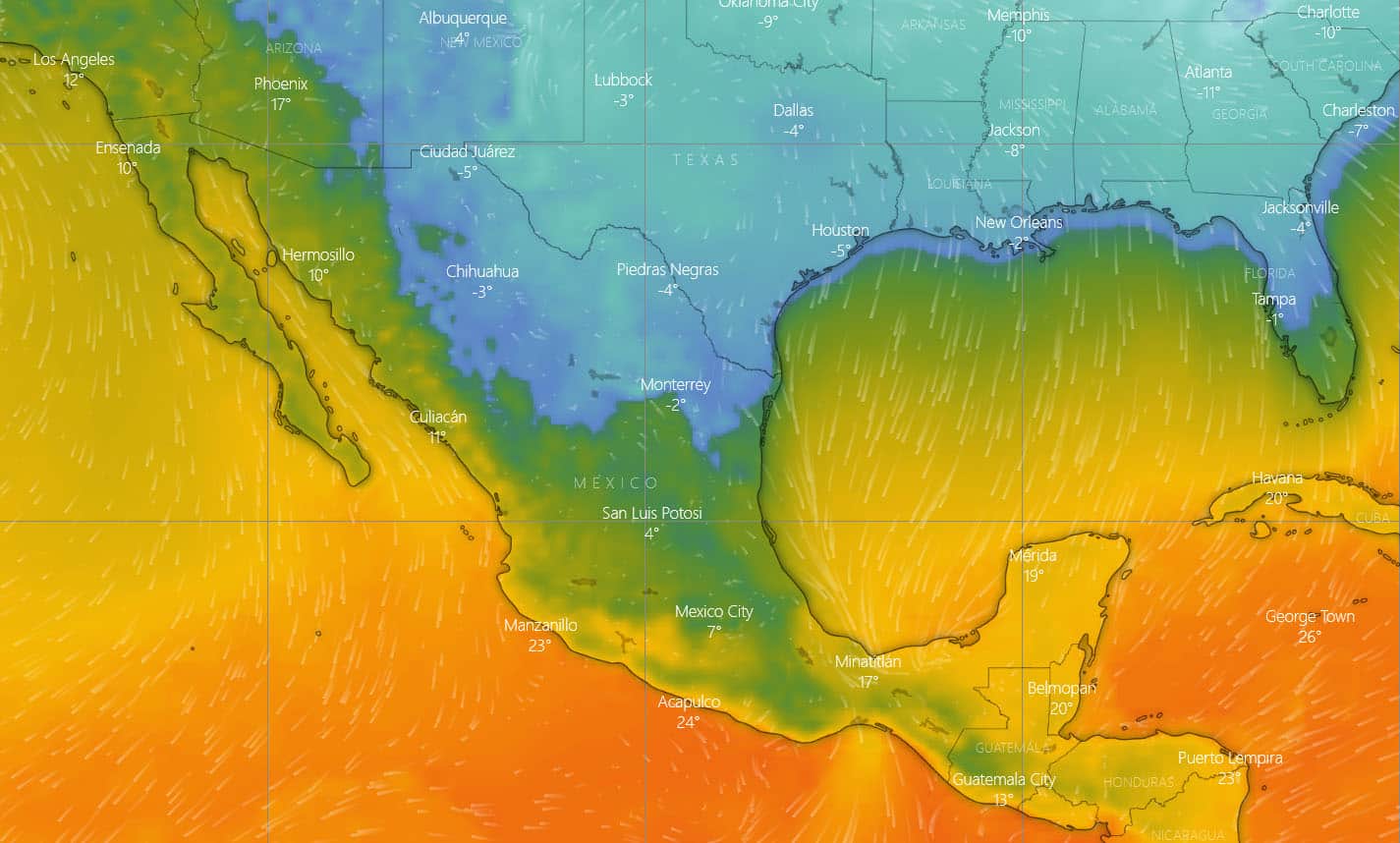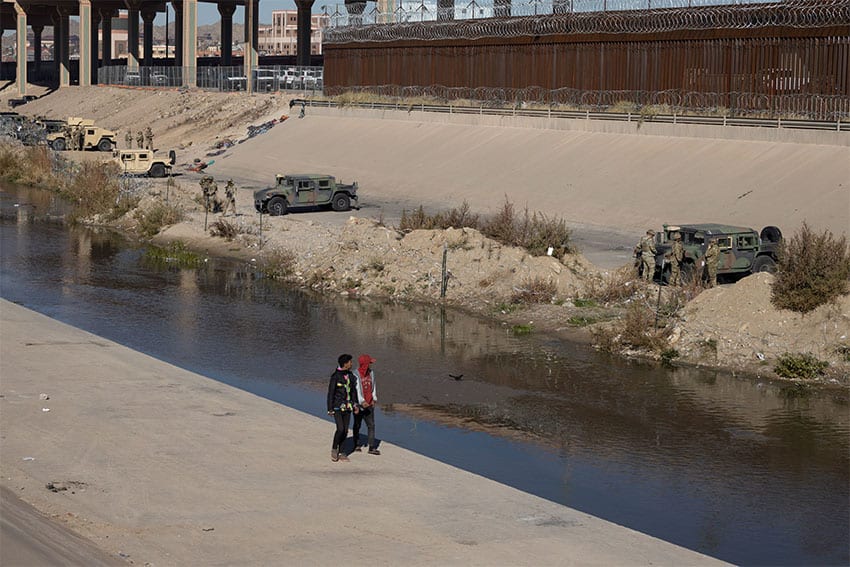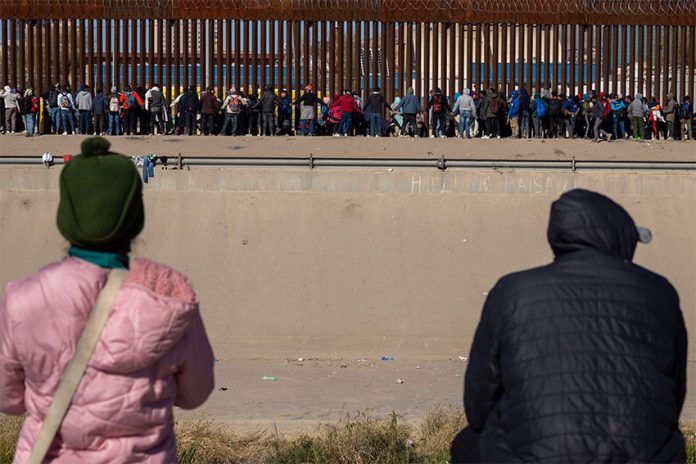With Friday’s temperatures in El Paso falling below zero Celsius — the high teens in Fahrenheit — local government leaders and nonprofit organizations were scrambling to open up heating stations, add extra cots in emergency shelters and distribute blankets.
But among the thousands of migrants still in the city, not all of them qualified to stay.
“We’re not permitted inside the shelter because we crossed without permission,” a Venezuelan woman named Adda told NPR. She traveled to El Paso with seven family members on what she said was a harrowing journey through Mexico.
“We went to ask if we could stay in the shelter because my daughter is pregnant,” Adda said in Spanish. “But they told us no, not without a permit.”
Just across the border from Ciudad Juárez, Chihuahua, the city of El Paso is already in the midst of a declared state of emergency over thousands of migrants living in unsafe conditions. Now, the city has opened a government-run shelter with 1,000 cots inside its convention center, as well as shelters at hotels and several unused schools.
But they are open only to migrants who have documentation that they have turned themselves into the Border Patrol.
That policy is set by the federal government. And it’s leaving what would seem to be hundreds of migrants out in the cold, although there is no official count.
If undocumented migrants show up at government-run sites, they’ll be connected with Customs and Border Protection to start the process of turning themselves in, or they’ll be connected with shelters run by nonprofits, El Paso city spokesperson Laura Cruz Acosta told CNN.
The temperature in El Paso plummeted from 20 C (68 F) at around 4 p.m. on Thursday to -8 C (18 F) at around 7 a.m. Friday. Saturday’s forecast calls for a high of 10 C and a low of -3 C, with a warming trend to follow.

El Paso and other Texas border cities have raced to move migrants off the streets and into warm shelters, but shelters in El Paso are overflowing as thousands of migrants have arrived in the city in recent days, anticipating the end of Trump-era border restrictions.
“We wanted to make sure that we were able to get everyone who was on the street off the streets before this cold weather hits,” Mario D’Agostino, El Paso’s deputy city manager, told NPR on Thursday.
Migrants without paperwork can stay in shelters run by churches and nonprofits, if space is available (often it is not).
Overnight Thursday, sidewalks near the Greyhound bus station were lined with blankets and makeshift bedding as dozens of migrants tried to keep warm.
“We sleep on leftover cardboard pizza boxes inside layers and layers of blankets,” Carlos Areas from Nicaragua told NPR.
El Paso police officers on bicycle patrol encouraged migrants to relocate to the emergency shelter in the convention center. But many of the migrants on the street had not turned themselves into the Border Patrol.

Since March 2020, pandemic-era border restrictions known as Title 42 have allowed immigration authorities to quickly expel many migrants, including those seeking asylum. However, those restrictions have been applied unevenly — in large part because Mexico has refused to take back migrants from certain countries, including Cuba and Nicaragua.
Title 42 was expected to be repealed this week — which is why so many migrants had either arrived at the Mexico-U.S. border or crossed it in recent days — but it was not.
The cold weather is only adding to an already difficult situation created by the increase in migrant crossings, which has overwhelmed the El Paso shelter system.
In order to avoid having migrants sleeping on the street — a dangerous option in the arctic cold — officials in El Paso have sent some to other cities such as Houston, but shelters there are also reaching capacity.
“Extremely cold, below freezing temperatures are expected along the Mexico and United States border during the next several days,” Hugo Carmona, acting associate chief of U.S. Border Patrol Operations, said in a video statement released a few days ago. “Do not risk your life and that of your loved ones trying to cross the river or the desert. Help avoid human death and tragedy. Stay home or remain in a safe shelter. This is a warning of extreme importance.”
With reports from El Financiero, CNN and NPR
